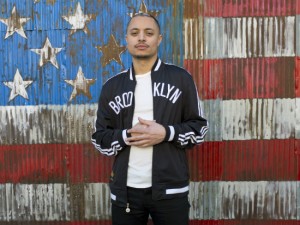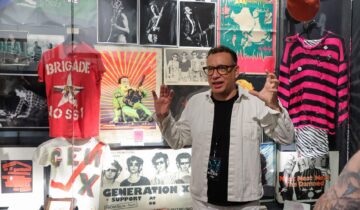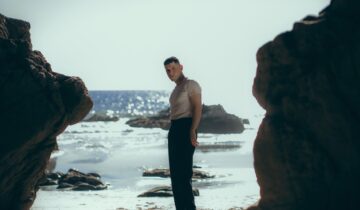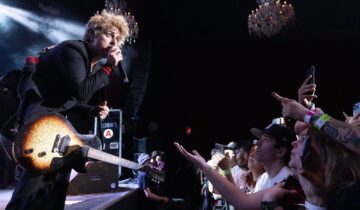 For SF WEEKLY: Singer José James is a go-to example, in the 2010s, of how jazz is — and always has been — a music that consistently redefines itself. James, 36, who has collaborated with the experimental producer Flying Lotus and appeared on The Tonight Show, brings a soulful baritone singing voice and disparate music tastes to his version of jazz, often performed in a baseball cap and a T-shirt. The seminal Blue Note Records released his fifth studio album, While You Were Sleeping, last week, a collection of songs that features much more guitar, electronics, and pop hooks than your typical jazz album. James performs this Wednesday, June 18, at the SFJAZZ Center as part of the 32nd annual San Francisco Jazz Festival.
For SF WEEKLY: Singer José James is a go-to example, in the 2010s, of how jazz is — and always has been — a music that consistently redefines itself. James, 36, who has collaborated with the experimental producer Flying Lotus and appeared on The Tonight Show, brings a soulful baritone singing voice and disparate music tastes to his version of jazz, often performed in a baseball cap and a T-shirt. The seminal Blue Note Records released his fifth studio album, While You Were Sleeping, last week, a collection of songs that features much more guitar, electronics, and pop hooks than your typical jazz album. James performs this Wednesday, June 18, at the SFJAZZ Center as part of the 32nd annual San Francisco Jazz Festival.
What or who brought you to appreciate jazz, hip-hop, and soul? What do you like about working in those forms?
I came up in the ’90s and it was just really exciting, with artists like the Beastie Boys who blended hip-hop and what we now call indie rock. I thought Green Day and Nirvana and Nine Inch Nails were super cool. A Tribe Called Quest and De La Soul and Public Enemy were experimenting with boundaries of sound. It drew me in. Jazz and soul was an inspiration for so much of that.
The jazz audience is largely considered to be stagnant. Why do you think that is?
Everybody has their time with different styles of music. Once you discover jazz, it never leaves you. I always think of jazz as an amazing cognac or wine, something I would have hated as a teenager. I hate to use the word sophisticated, but jazz has a broader list of emotions than anything else I listen to. Once you’re in that, it doesn’t leave.
You’ve said your new album, While You Were Sleeping, combines your love of a broad range of sounds, like Nirvana, Madlib, Frank Ocean, Al Green, and Radiohead. How did you go about bringing that together on one album?
In my head, it was not difficult, but the application was extremely difficult. Musicians can play any kind of music, but they have to be open to the idea to do it. It took a while to get other people on the same page and make it feasible to people. Guys in my band would say, do you wanna do rock? Indie rock? Electronica? I envy writers and painters who work alone, but I have to work with other people. I didn’t want session guys. I wanted it to be extension of my band. Wanted guys to come up with parts natural to them so we had ownership by everybody involved. And we crossed that threshold.
I’m guessing Wynton Marsalis, a jazz purist, may not consider a lot of your music “jazz.”
I’ve talked with him about hip-hop and I disagree with him about it. He doesn’t like rap in any way. I think it’s dangerous to dismiss a whole genre. I wouldn’t be alive without hip-hop.
How do you go about writing a new song? What does your writing process look like?
The music always comes first. I hear an idea in my head, then hum it, record it, flesh out on guitar or piano. I think of it as constructing a room, and the words and production are how you’re describing a room. The bedrock comes first.
Judging by your laid-back, soulful music, you are the most chill dude on the planet. Do you ever get worked up about stuff?
I learned early on you have to take it super easy. The last time I truly got upset was in the Madrid airport at like 7 in the morning. We missed our flights, and I had to deal with some insane bureaucracy and lack of sleep, not enough food, and it was like show number 78 of the year or something. It takes a lot to get me worked up.
What can the audience expect from your SF Jazz Festival show?
It’s the biggest band I’ve ever had. I’ll have drums, keys, bass, guitar, lots of vocals, intricate arrangements, and a lot more gear onstage. We won’t really open up songs for solos, since it’s more pop, which makes it more difficult to play.
image: Janette Beckmann, courtesy of Capitol Music Group and Blue Note Records



